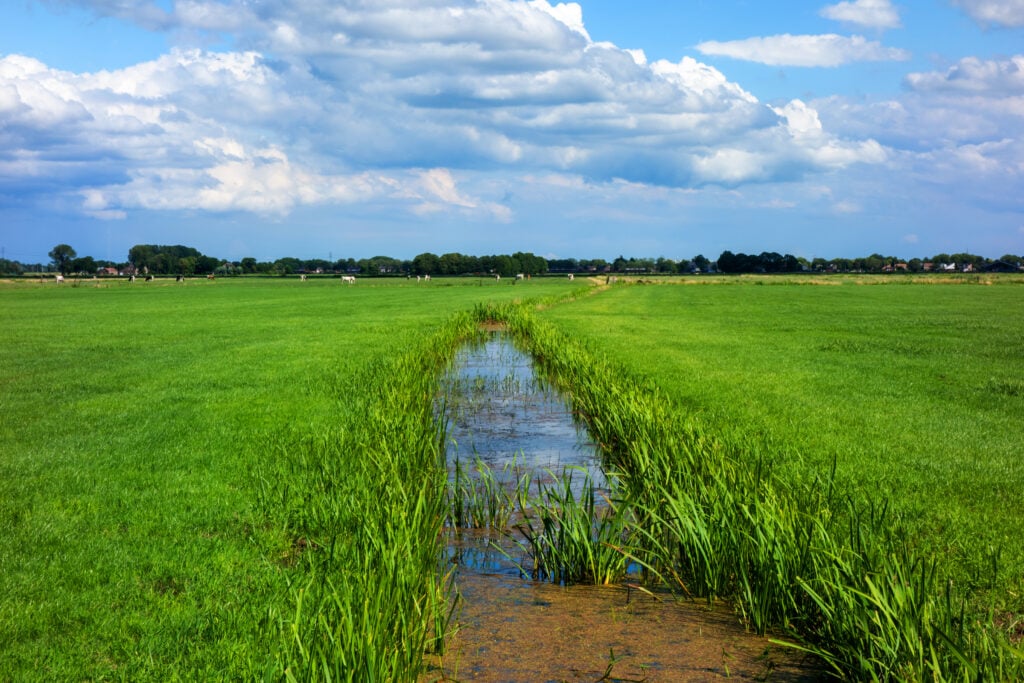If your property is located near farms or agricultural fields, your private well may be at risk of contamination from agricultural runoff. Pesticides, fertilizers, and animal waste can seep into the groundwater, posing serious health risks. In this article, we’ll explore why well water testing for agricultural runoff is essential, what contaminants to check for, and how to protect your water supply.
How Agricultural Runoff Affects Well Water Quality
Agricultural runoff can impact well water quality in several ways:
- Nitrate and Nitrite Contamination: Fertilizers and animal waste are rich in nitrogen, which can leach into groundwater as nitrates or nitrites. High levels are especially dangerous for infants, causing methemoglobinemia or “blue baby syndrome.”
- Pesticide and Herbicide Residues: Chemicals used in crop management can contaminate nearby wells, posing long-term health risks even in trace amounts.
- Bacterial Contamination: Animal manure and waste runoff can introduce harmful bacteria like E. coli and coliform bacteria.
- Sediment and Turbidity: Soil erosion from agricultural fields can increase sediment and turbidity, affecting water clarity and quality.
When to Test Well Water for Agricultural Runoff
To ensure safe drinking water, test your well water:
- Annually: At least once a year to check for nitrates, pesticides, and bacteria.
- After Heavy Rain or Flooding: Rain can wash contaminants from agricultural fields into your well.
- During Planting and Harvest Seasons: Increased pesticide and fertilizer use during these times increases the risk of contamination.
- If You Notice Changes in Water Quality: Changes in taste, smell, or color may indicate contamination.
Key Contaminants to Test For
To protect your water supply from agricultural runoff, test for the following contaminants:
- Nitrates and Nitrites: Linked to fertilizers and animal waste.
- Pesticides and Herbicides: Including glyphosate, atrazine, and other common agricultural chemicals.
- Total Coliform Bacteria and E. coli: Indicators of bacterial contamination from animal manure or waste runoff.
- Volatile Organic Compounds (VOCs): Found in certain pesticides and industrial pollutants.
- Turbidity and Sediment: High turbidity can indicate sediment disturbance, which may harbor bacteria and other contaminants.
How to Protect Your Well from Agricultural Runoff
- Maintain a Safe Distance: Ensure your well is located far from agricultural fields, animal feedlots, and septic systems.
- Install a Well Cap and Seal: Secure the well cap and seal to prevent surface water intrusion.
- Create a Buffer Zone: Plant vegetation around your property to absorb runoff and reduce soil erosion.
- Use a Water Filtration System: Choose a filter designed to target agricultural contaminants like nitrates and pesticides.
What to Do If Contaminants Are Found
If your well water tests positive for harmful contaminants:
- Stop Using the Water Immediately: Switch to bottled water for drinking, cooking, and bathing until the issue is resolved.
- Install a Water Filtration System: Choose a system designed to target the specific contaminants found.
- Retest the Water: After remediation, retest to ensure the water is safe for consumption.
Conclusion
Agricultural runoff poses a significant risk to private well water quality. By testing your well water for nitrates, pesticides, bacteria, and other contaminants, you can protect your family’s health and ensure safe drinking water year-round.
Learn more about water testing services today.

